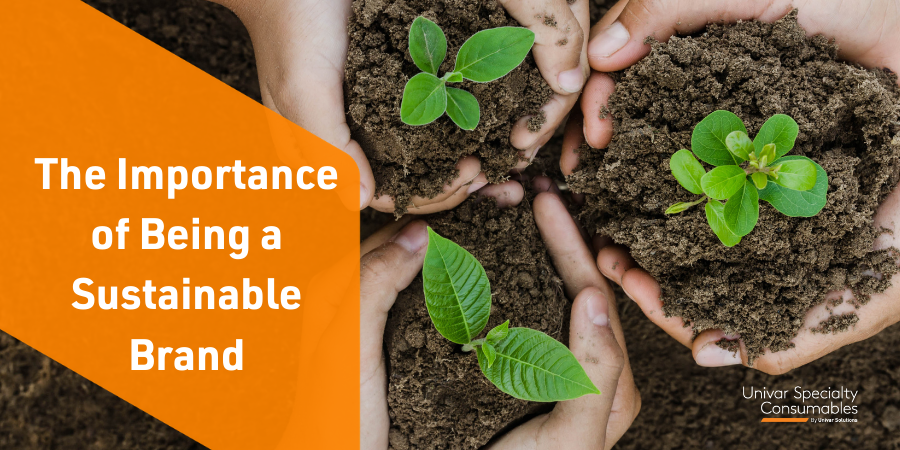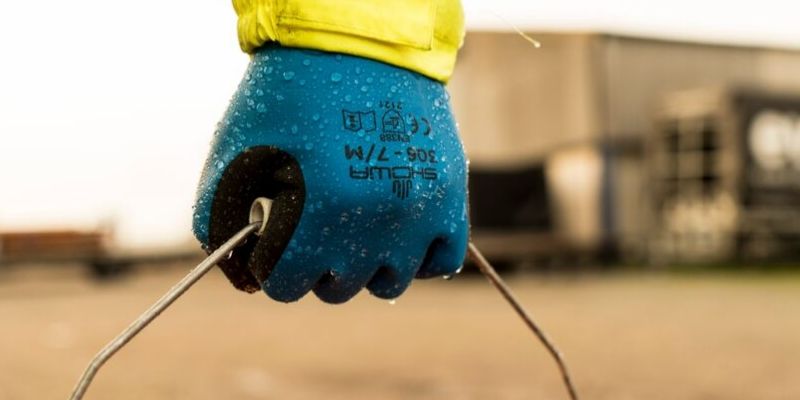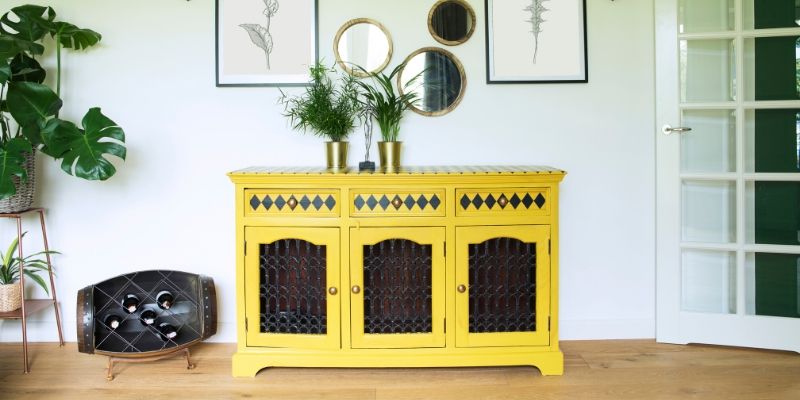What Are Your Favourite Brands Doing to Be Eco Conscious and Sustainable?

Here at Univar Specialty Consumables, sustainability is more than an aspiration — it’s at the core of our business. We believe in helping to build a better world Today, Tomorrow & Together, and that it is important to ensure transparency and accountability of our actions to continue company improvement through sustainability and innovation. Being a company committed to delivering sustainable solutions that create value for our stakeholders and help the environment, it is important that our partners share those same principles and demonstrate their own commitment through direct action.
We’d love to take the opportunity to highlight some of our top partners who are all doing their bit to reduce their own environmental impact.
Castrol
Castrol are one of the biggest names in the industry for oils and greases, with their products considered some of the best on the market. They are aiming to be a net zero carbon emissions brand by 2050 or sooner with their Path360 strategy. Not only does this plan focus on their activities and emissions as a brand, but also on their products and how they can help commercial customers reach their own sustainability goals without compromise.
The Path360 strategy focuses on three key areas; saving waste, reducing carbon emissions and improving people’s lives through supporting carbon offset programmes. Their pledge to reduce their plastic footprint by 50% by 2030 is already underway with their recent redesign of their packaging, reducing their plastic use by 7,000 tonnes per year. As is their pledge to halve the net carbon intensity of its products by 2030, with 20% of its products in 2020 becoming carbon-neutral.

Dow
Like Castrol, Dow (best known for their DOWSIL™️ Silicones) are also aiming to become a carbon-neutral company by 2050. Dow has a detailed action plan of how they are to achieve this with goals for 2025, 2030 and 2035 already, following their 10-year sustainability goal structure which has been in place since 1995.
Dow’s 2025 goals focus on providing more sustainable products and solutions, with new targets to develop sustainable blueprints through science and public policy to help other brands and industries follow in their footsteps.
By 2030 Dow are striving to reduce their own net carbon emissions by 5 metric tonnes, to enable others to collect and recycle 1 million metric tons of plastic, and by 2035 to transform their packaging so that all products are 100% recyclable.
.png?width=525&name=Untitled%20design%20(4).png)
DuPont
DuPont, parent company for many brilliant brands including MOLYKOTE®, have 9 different sustainability goals to be reached by 2030, also leading to a carbon-neutral goal by 2050. Their goals include reducing their greenhouse gas emissions by 30%, sourcing 60% of their electricity through renewable energy sources, advancing water technology to allow millions access to clean water and improving over 100 million lives through participating in global social impact programs.
So far DuPont have supported water programs in many countries including Egypt, Australia, Kenya and Taiwan to give people easy access to clean drinking water, fashioned innovative technologies to support safer and greener building materials and also lent their expertise to the issues of fast fashion by developing new textile solutions to help clothing look and feel newer for longer - in the hopes that this will reduce the amount of clothing that ends up in landfill.
.png?width=528&name=Untitled%20design%20(5).png)
Eco Solutions
Eco Solutions are a world-leading company who have created solvent free, non-toxic, water-based products for both the trades and the day-to-day consumer. These include paint removers, degreasers and a range of general cleaners which are not only kinder to the environment, but also safer to the consumer.
Serious exposure to solvents can cause organ or tissue damage and even in small quantities they can cause water pollution, seriously impacting the quality of all groundwater including drinking water. Eco Solutions are committed to educating customers and the trades industries about the harms that solvents can cause as well as providing their effective water-based products as alternatives.

Mirka
Mirka tools are best known for their dust free sanding experience and trusted by tradespeople around the globe. Mirka see sustainable innovation not only as smart but also profitable. They aim to keep their products advancing to solve customer concerns as well as occupational safety, recognising that their customers are also environmentally conscious.
One such advancement is the development of the myMirka® app which, through Bluetooth connection, can measure energy consumption, temperature and sanding speed. Using this, owners can monitor the lifetime usage of their tools to increase the tool lifecycle, reducing carbon footprints though less need to consistently replace.
Mirka also made the change to their Abranet abrasives, using a net instead of paper. All of their polishes are also water-based rather than solvent based. Both of these innovations help to protect the environment, helping you choose sustainable alternatives every day.

Stanley Black & Decker
Stanley Black & Decker are one of the biggest names in tools and there’s no question why. They continue that reputation, taking the carbon-neutral goal two steps further. They believe that carbon-neutral initiatives aren’t enough to truly tackle climate change. Due to this, not only are they aiming to be carbon-neutral by 2030, 20 years earlier than some other companies, but advancing further than that to be what they are choosing to call “carbon positive” — which will see them making positive changes globally.
They plan to completely remove fossil fuels from their operations as well as support the development of renewable energy, using technologies like solar panels to power their sites in order to maintain an 8% year-on-year reduction in their carbon emissions.
-1.png?width=640&name=Untitled%20design%20(1)-1.png) In 2019 STANLEY EARTH® introduced the NADI Smart Solar Pump for sustainable irrigation to help tackle the lack of reliable, clean energy to operate irrigation in India. The pumps can be monitored and controlled remotely. Over 300 have now been installed, irrigating over 800 acres of land and Stanley Black and Decker have funded educational events to inform over 2,000 farmers about the advantages of sustainable irrigation.
In 2019 STANLEY EARTH® introduced the NADI Smart Solar Pump for sustainable irrigation to help tackle the lack of reliable, clean energy to operate irrigation in India. The pumps can be monitored and controlled remotely. Over 300 have now been installed, irrigating over 800 acres of land and Stanley Black and Decker have funded educational events to inform over 2,000 farmers about the advantages of sustainable irrigation.
-2.png?width=548&name=Untitled%20design%20(2)-2.png)
With the next generation of consumers increasingly focused on being socially conscious and eco-friendly, it is important for every brand, regardless of product, to be looking to the future. Not only to continue to be profitable, but also to make sure that we leave behind a world for future generations to enjoy. By buying these brands you can sleep happy knowing you are investing in companies that are focused on bringing about change for the better.
We think Stanley Black and Decker have hit the nail on the head; it is not enough to simply be “neutral”, the answer lies in putting more back into the world than we take.



.png?width=254&name=Untitled%20design%20(3).png)
.png?width=252&name=Untitled%20design%20(6).png)
.png?width=240&name=Untitled%20design%20(7).png)
.png?width=256&name=Untitled%20design%20(9).png)
.png?width=246&name=Untitled%20design%20(10).png)
.png?width=254&name=Untitled%20design%20(11).png)
.png?width=250&name=Untitled%20design%20(12).png)
.png?width=254&name=Untitled%20design%20(18).png)
.png?width=252&name=Untitled%20design%20(13).png)
.png?width=260&name=Untitled%20design%20(14).png)
.png?width=252&name=Untitled%20design%20(15).png)
.png?width=244&name=Untitled%20design%20(17).png)

